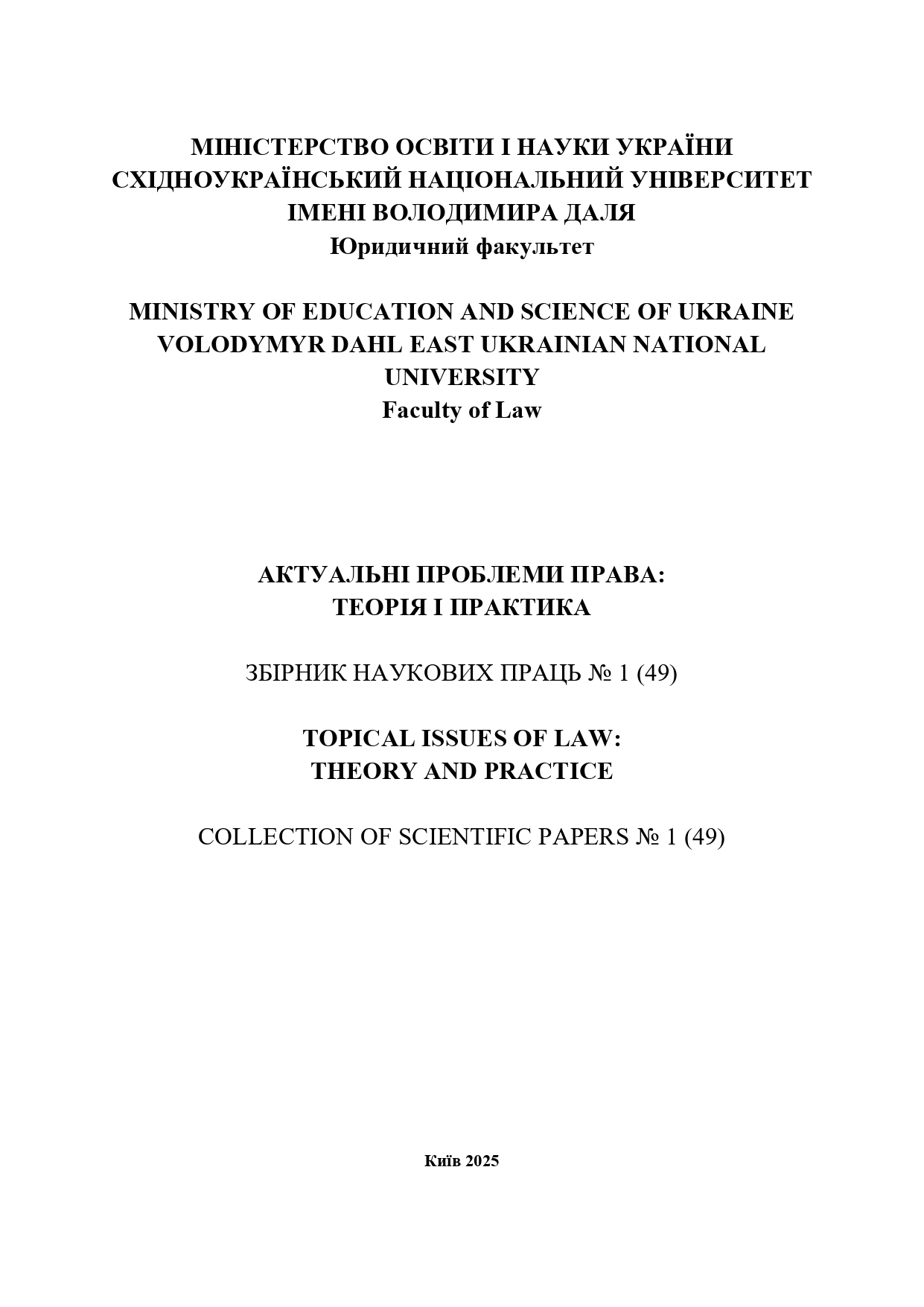INVALIDATION OF A NOTARIZED LEGAL TRANSACTION: PROBLEMS AND SOLUTIONS
DOI:
https://doi.org/10.33216/2218-5461/2025-49-1-105-117Abstract
This article aims to analyze problematic issues arising in the invalidation of legal transactions
certified by a notary, considering the current
legislation of Ukraine, judicial practice, and the
European experience of countries with the Latin
notarial model. Particular attention is paid to
theoretical debates concerning the scope of notary
liability and the role of the notarial act as a public
document. The article provides examples of recent
decisions by the Supreme Court that illustrate
approaches to assessing the validity of notarized
contracts and grounds for declaring them, invalidparticularly
in cases involving a plaintiff's mistake
regarding materially significant circumstances, the
existence of grounds to consider a notarized
agreement as not concluded or the execution of a
fraudulent (fraudulent conveyance) contract. Based
on the analysis of case law, it is concluded that even
when formal notarization procedures are observed,
courts may declare contracts invalid based on a
deeper examination of the parties' intent, the extent of
a person's legal capacity, or the presence of fraud,
coercion, etc. The article formulates proposals for
amending the Civil Code of Ukraine to improve
notaries' civil liability. It also establishes the
correlation between fraudulent and fictitious
contracts, demonstrating that despite some similarities, they differ significantly in terms of their purpose and the mechanism for proving invalidity.
Accordingly, amendments to the Civil Code of Ukraine are proposed. A key element should be a proper and balanced approach between protecting clients' rights and ensuring guarantees for notaries.
Keywords: invalid legal act, notarial certification, judicial practice, the presumption of legality, fictitious legal transaction, fraudulent contract, Latin notarial, expression of will, true intentions.

